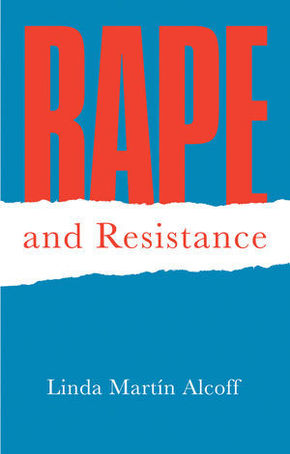
| Verlag | Wiley & Sons |
| Auflage | 2018 |
| Seiten | 264 |
| Format | 15,3 x 23,0 x 2,6 cm |
| Gewicht | 436 g |
| Artikeltyp | Englisches Buch |
| EAN | 9780745691923 |
| Bestell-Nr | 74569192EA |
Sexual violence has become a topic of intense media scrutiny, thanks to the bravery of survivors coming forward to tell their stories. But, unfortunately, mainstream public spheres too often echo reports in a way that inhibits proper understanding of its causes, placing too much emphasis on individual responsibility or blaming minority cultures.
In this powerful and original book, Linda Martín Alcoff aims to correct the misleading language of public debate about rape and sexual violence by showing how complex our experiences of sexual violation can be. Although it is survivors who have galvanized movements like #MeToo, when their words enter the public arena they can be manipulated or interpreted in a way that damages their effectiveness. Rather than assuming that all experiences of sexual violence are universal, we need to be more sensitive to the local and personal contexts - who is speaking and in what circumstances - that affect how activists' and survivors' protests w ill be received and understood.
Alcoff has written a book that will revolutionize the way we think about rape, finally putting the survivor center stage.
Inhaltsverzeichnis:
_ Contents
_ Acknowledgments
_ Introduction: Rape after Foucault
_ 1. Global Resistance: A New Agenda for Theory
_ 2. The Thorny Question of Experience
_ 3. Norming Sexual Practices
_ 4. Sexual Subjectivity
_ 5. "Consent", "Victim", "Honor"
_ 6. Speaking As (with Laura Gray-Rosendale)
_ 7. The Problem of Speaking for Myself
_ Conclusion: Standing in the Intersection
_ Notes
_ References
_ Index
Rezension:
"Alcoff's work is consistently insightful, clearly written, and well argued. She bravely tackles a number of contemporary challenges to feminist philosophy, including attacks on the epistemic authority of sexual assault victims, worries about making normative judgments about sex, difficulties with defining the concept of rape, and the political dangers of public discourse. ... The best book I have read in several years."
Debra L. Jackson, California State University, Bakersfield
